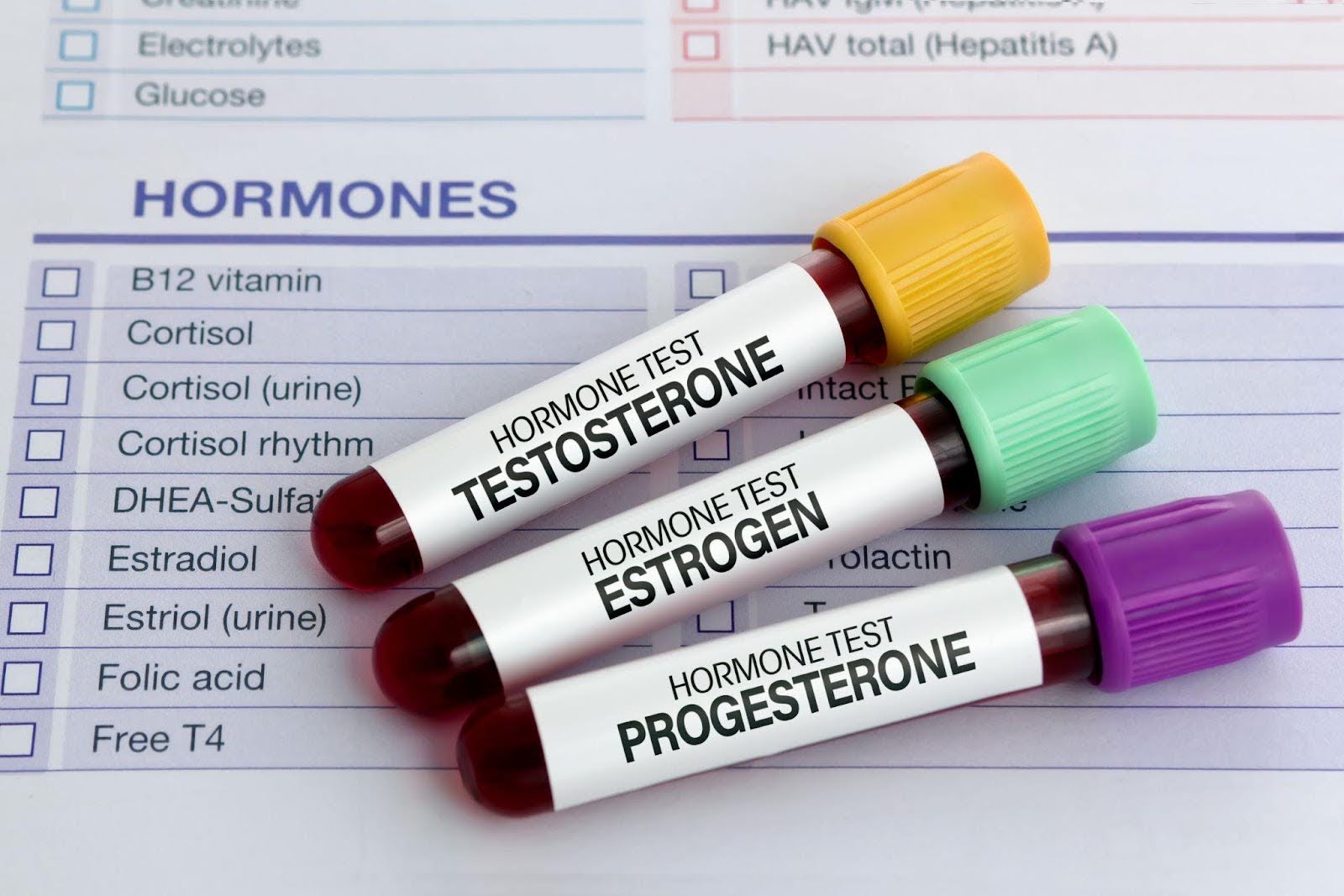Menopause is a natural part of aging, but that doesn’t mean it’s easy. As your hormone levels decline, you might find yourself dealing with hot flashes, mood swings, night sweats, sleep problems, brain fog, or a drop in energy and motivation.
These changes have the potential to affect nearly every part of your life, from work and relationships to confidence and overall well-being.
Hormone Replacement Therapy (HRT) is one of the most effective ways to relieve menopause symptoms and help you feel like yourself again.
By restoring the hormones your body is no longer producing at the same levels, HRT helps ease discomfort, supports long-term health, and improves your quality of life during this transition.
In this blog, we’ll walk you through everything you need to know about HRT — from how it works and the different types available to the benefits, potential risks, and how to know if it’s right for you.
Whether you’re beginning to notice symptoms or you’re deep into the menopausal phase, understanding your options can empower you to make informed, confident choices about your health.
What is menopause?
Menopause is a natural biological transition that marks the end of a woman’s reproductive years. It officially begins when you’ve gone 12 consecutive months without a menstrual period, typically occurring between the ages of 45 and 55. While it’s a normal part of aging, the symptoms leading up to it may significantly affect your quality of life.
Before menopause, there’s a stage called perimenopause, which could start years earlier. During this time, your hormone levels — especially estrogen and progesterone — fluctuate unevenly.
These shifts cause a wide range of symptoms, including hot flashes, mood swings, irregular periods, fatigue, vaginal dryness, brain fog, and trouble sleeping. After menopause, you enter postmenopause, when these hormone levels stabilize at a lower level, but some symptoms may continue.
What makes menopause challenging is how differently it affects each woman. Some experience mild symptoms, while others struggle with intense physical and emotional changes. These inconvenient symptoms may interfere with work, relationships, sleep, and self-esteem.
The good news is that relief is possible. Understanding menopause is the first step toward managing it. With support from healthcare providers and access to personalized treatment options like hormone replacement therapy, many women find balance and renewed vitality in this next phase of life.

What is Hormone Replacement Therapy?
Hormone Replacement Therapy (HRT) helps relieve menopause symptoms by replenishing the hormones your body naturally stops producing — primarily estrogen and progesterone.
As these hormone levels drop during perimenopause and menopause, many women experience uncomfortable symptoms like hot flashes, night sweats, mood swings, sleep issues, and vaginal dryness. HRT works by bringing those hormone levels back into balance, easing the symptoms, and improving overall well-being.
There are several types of HRT, depending on your needs.
Estrogen-only HRT
This type is typically prescribed for women who have had a hysterectomy (surgical removal of the uterus). Without a uterus, there’s no risk of estrogen-related thickening of the uterine lining, so progesterone isn’t needed. Estrogen-only therapy helps relieve common symptoms like hot flashes, vaginal dryness, and sleep disturbances.
Combined estrogen and progesterone HRT
If you still have your uterus, your provider will likely recommend a combination of estrogen and progesterone (or a progestin).
Progesterone protects the uterine lining from the risks of long-term estrogen exposure, including endometrial cancer. This combination is available in both continuous (daily use) and cyclical (mimics a menstrual cycle) formats, depending on your age and stage of menopause.
Local (vaginal) HRT
For women whose main concerns are vaginal dryness, itching, or painful intercourse, low-dose vaginal estrogen may be used without significantly affecting the rest of the body.
It comes in creams, tablets, or vaginal rings, and typically doesn’t require progesterone — even if you still have your uterus — because the dose is so small.
Systemic HRT
Systemic hormone therapy affects the entire body and is used for more widespread symptoms like hot flashes, night sweats, mood swings, and sleep disturbances. It can be delivered through oral tablets, skin patches, topical gels, creams, or injections, allowing flexibility based on lifestyle and body response.
Bio-identical hormone therapy
These are hormones that are chemically identical to those produced by your body. Some are FDA-approved and available by prescription, while others are compounded in custom doses by specialized pharmacies.
While bioidentical HRT can be beneficial, it’s important to work with a provider who’s experienced in monitoring and adjusting treatment for safety and effectiveness.
At its core, HRT is about more than symptom relief — it’s about supporting your body through a major hormonal shift, restoring quality of life, and preventing long-term issues like osteoporosis.
Like any medical treatment, it isn’t one-size-fits-all, but with guidance from a qualified provider, HRT can be a safe and effective part of your menopause care plan.
Benefits of HRT for menopause symptoms
HRT offers powerful relief for many of the disruptive symptoms that come with menopause.
As hormone levels drop, your body may struggle to regulate key systems like temperature control, mood, sleep, and bone strength. HRT helps restore balance, ease symptoms, and support overall health.
Relief from hot flashes and night sweats
One of the most common reasons women turn to HRT is to reduce the frequency and intensity of hot flashes and night sweats. These symptoms may interfere with sleep and daily life. Estrogen therapy is highly effective in restoring temperature regulation and keeping these episodes under control.
Improved sleep quality
Hormonal imbalances during menopause often disrupt sleep patterns, leading to insomnia or restless nights. By stabilizing hormone levels, HRT helps regulate the sleep-wake cycle, allowing you to fall asleep faster, stay asleep longer, and wake up feeling more rested.
Better mood and mental clarity
Estrogen plays a role in brain function, so its decline can lead to mood swings, anxiety, irritability, or brain fog. HRT supports mental clarity and emotional stability, helping you feel more like yourself again.
Healthier vaginal tissue and sexual comfort
Low estrogen levels can cause vaginal dryness, thinning, and discomfort during intimacy. Local or systemic estrogen therapy helps restore moisture and elasticity, improving sexual health and reducing pain during intercourse.

Stronger bones and reduced risk of osteoporosis
Estrogen helps maintain bone density. Without it, women are more vulnerable to osteoporosis and fractures. HRT slows bone loss and helps preserve bone strength, offering long-term protection against fractures, especially in the spine and hips.
Improved bladder function
Some women experience urinary urgency, frequency, or incontinence during and after menopause. Estrogen therapy may improve bladder and urethral tissue health, leading to better control and reduced discomfort.
Enhanced overall well-being
By addressing multiple symptoms at once — physical, emotional, and sexual — HRT often leads to a significant improvement in quality of life. Many women report feeling more energized, focused, and emotionally balanced.
For many women, HRT is a safe and effective way to manage menopause symptoms and feel like themselves again. Always consult a healthcare provider to explore whether HRT is a good fit for your needs.
Potential risks and side effects
While HRT offers significant relief from menopause symptoms, it’s important to understand the potential risks and side effects.
HRT affects each woman differently. Your personal health history, age, and the type of therapy you use all affect how your body responds. Working with a trusted provider ensures your treatment plan is both safe and effective.
Common side effects
Many side effects of HRT are mild and temporary, especially as your body adjusts to the therapy. These may include:
- Breast tenderness or swelling
- Nausea
- Bloating
- Mood swings or irritability
- Headaches
- Spotting or light vaginal bleeding (particularly in the first few months)
Adjusting the type, dosage, or delivery method of your hormones can manage most of these symptoms.
Is HRT right for you?
Hormone Replacement Therapy (HRT) can be life-changing for many women going through menopause, but it’s not the right fit for everyone.
Deciding whether HRT is right for you depends on several factors, including your age, medical history, symptom severity, and personal health goals. The key is working with a knowledgeable provider who can help you weigh the benefits and risks based on your individual needs.
You may be a good candidate for HRT if:
- You’re in perimenopause or recently entered menopause and experiencing moderate to severe symptoms like hot flashes, night sweats, sleep disturbances, or vaginal dryness.
- You’re in your 40s or 50s and generally in good health.
- You have an early menopause (before age 40) or have had your ovaries surgically removed — HRT can help reduce long-term risks like osteoporosis and heart disease.
HRT may not be recommended if you:
- Have a history of breast cancer, blood clots, stroke, liver disease, or heart disease.
- Are more than 10 years past menopause, as the risks can outweigh the benefits in older age groups.
- Are sensitive to hormones or have experienced severe side effects from previous hormone use.
If you’re unsure, start with a conversation. Your provider will take a full medical history, discuss your symptoms, and help you explore your options. HRT can be delivered in different forms and dosages, making it a flexible treatment that can be tailored to your comfort level and health goals.
Whether you’re looking for symptom relief or long-term support for bone and heart health, HRT could be part of a safe, effective plan.
How long can you stay on HRT?
One of the most common questions women ask is, “How long is it safe to stay on HRT?” The answer depends on your symptoms, health history, and how your body responds to treatment.
In the past, guidelines suggested limiting HRT to the shortest duration possible. However, recent research shows that for many women, using HRT for several years can be both safe and beneficial, especially when started near the onset of menopause. Women in their 40s and 50s who begin HRT early typically have a lower risk profile than those who start later in life.
Most providers recommend re-evaluating your need for HRT each year, adjusting the dosage or type of hormone therapy as your body changes. Some women taper off after a few years, while others choose to continue longer, especially if they’re managing persistent symptoms or protecting bone health.
The key is personalized care and regular check-ins. At High West Medical, we monitor your progress closely and make sure your treatment plan evolves with your needs. Whether you’re looking for short-term relief or long-term support, you’ll have expert guidance every step of the way.

Frequently asked questions about HRT
Q: What is the difference between traditional HRT and bio-identical HRT?
A: Traditional HRT uses synthetic hormones, while bio-identical HRT uses plant-based hormones that are chemically identical to those your body naturally produces. Many women choose bio-identical HRT for its natural structure and personalized dosing.
Q: What symptoms can HRT help relieve?
A: HRT helps manage hot flashes, night sweats, brain fog, mood swings, vaginal dryness, low libido, and sleep issues. It also supports bone health and helps prevent osteoporosis.
Q: Is HRT safe?
A: For many women, especially those who begin treatment near the start of menopause, HRT is safe and beneficial. Risks vary depending on your health history and the type of therapy used. Regular monitoring helps ensure safety.
Q: How long should I stay on HRT?
A: There’s no one-size-fits-all answer. Some women use HRT for a few years, others for longer. Your provider will regularly assess your needs and adjust your plan over time.
Q: Do I have to go through lab testing before starting HRT?
A: Yes. A full hormone panel helps your provider understand your current levels and design a treatment plan tailored to your needs, especially with bio-identical hormone replacement therapy.
Q: Can HRT help with weight gain or fatigue?
A: Yes. By balancing hormones, HRT may help reduce fatigue, stabilize metabolism, and support energy levels, though a healthy diet and lifestyle are still key parts of feeling your best.
Ready to feel like yourself again? High West Medical can help
If menopause symptoms are disrupting your daily life, you don’t have to push through the discomfort alone.
At High West Medical, we specialize in Bio-Identical Hormone Replacement Therapy (BHRT) — a natural, personalized approach to restoring hormone balance and improving your quality of life. Our expert team takes the time to understand your symptoms, health history, and goals, so we can create a treatment plan that works with your body, not against it.
Whether you’re dealing with hot flashes, fatigue, mood swings, or low libido, BHRT offers targeted relief with hormones that are molecularly identical to those your body once produced. It’s a safe, effective way to feel stronger, more energized, and more in control.
Contact High West Medical today to schedule your consultation and find out if Bio-Identical Hormone Replacement Therapy is the right fit for you. We’re here to help you feel balanced, supported, and confident in this next phase of life.





